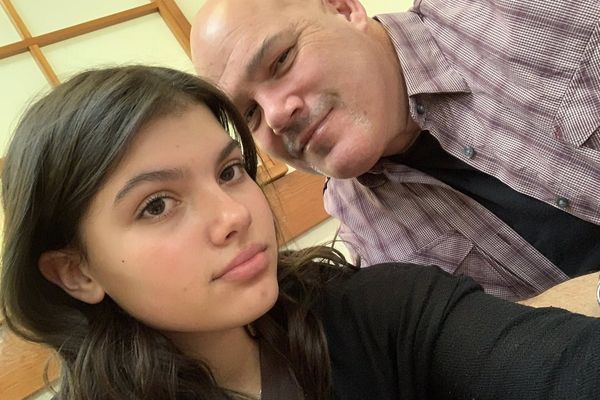Safety at a football stadium has never had a universal meaning for match-goers. The expectations differ between demographics, especially genders. While men routinely gather for an afternoon of matchday gaiety without concerns over safety, women such as myself find ourselves praying for it on the terraces.
Football sadly has a way of highlighting the worst elements of society. One minute you feel heartened there is a sense of solidarity over racial discrimination, sexual and gender discrimination. But in the next moment, the game makes you feel uncomfortable in your own skin.
There is a clear disparity in the lifestyle and culture of match-going fans in men's and women's football. The men’s game is home to more of the hardcore, laddish fan culture, whereas the women’s game has become a haven of a calmer more family-orientated atmosphere. Those laddish men may not be interested in being a part of the women's game but it does not mean women should not be made welcome in the men's game.
I must admit, the lengths I have to travel to watch women in action is ridiculous. Several of the London-based clubs play their games right on the suburban outskirts of London. It bothers me that I have to leave the familiar postcodes to watch Chelsea Women play the best football that they have in years.
So when I had the chance to watch Chelsea face Arsenal at the Emirates, I took it with both hands. To say it was an eye-opener is an understatement. The atmosphere was … peaceful.
Marva Kreel, Everton supporter, Label Manager, and footballer for Rinse Group has admired the different atmosphere that the WSL provides.
"For one, it’s much more family-friendly; there are a lot more kids and families so generally less aggressive and much more welcoming", she told football.london.
"Opposing fans mix a lot more too so the tribalism isn’t there as much at all. I’d have no reservations about going to a women’s game alone."

While tribalism is so deeply entrenched in supporting a football club on the men's side, those dangers in mixing with opposing supporters do not apply to the Women's Super League.
Finding balance is the key to a safer environment for everyone. I am not suggesting that we mix Arsenal and Tottenham fans together during a North London derby. That would be crazy!
However, if WSL fans are able to sit amongst each other without the risk of a violent outbreak, surely fans on opposite ends of a stadium can go their separate ways peacefully?
Goal Diggers Podcaster and WSL correspondent Moyo Abiona understands the importance of tribal banter between rivals.
“Having a clear separation between your support for your own team as well as laughing at the other team brings more of a competitive edge to the game in my opinion," she said.
Being a match-going Manchester United fan, she embraces the rivalries that come with it. Football without laughter is not a sport that we signed up for.

“At the same time, however, crossing the line isn’t acceptable so it’s about finding the balance," she added.
The rivalries and terrace culture are just a piece to a vast puzzle of issues that women face within the men’s game.
Do you ever need to think twice about a piece of clothing to go to a men's match? Normally I go with a casual, baggy team shirt and jeans. A comfortable pair of trainers to match the occasion. The average fan would most likely do the same, male or female.
The option to wear loose football shirts comes with a thought process for some women. I’d wear a pair of jean shorts on a hot day out for a WSL match, I probably wouldn’t dare do the same for a Premier League match.
It is not a fashion choice that stems from terrace culture but a choice born out of women's deepest fears.
Goal Diggers Podcaster and Sports Law student, Chey-Ann McLeod shares her experience and why she makes conscious choices when picking out her matchday outfits.
“I think a lot about the clothes I wear. I tend to wear loose baggy clothes to men’s games. In summer or at the beginning of the season, I still tend to wear jeans instead of shorts. Baggy t-shirts instead of my football shirt because I don’t want the attention," she explained.
"The first time I wore shorts to a match, there were unwanted eyes, unwanted catcalling. Inappropriate whistling.
"All I did was dress appropriately for the weather to go and watch my favourite football team. It was extremely uncomfortable and it’s a reservation that I have over going to men’s matches.”
Women are expected to find comfort in the world of football where fans of the opposite gender make them feel uncomfortable. It is a societal issue that needs to be handled a lot better. It continues to take away from the beauty of the game.
The FSA and Sky Sports have reported some alarming yet eye-opening statistics regarding women's experiences in men’s football.
One in five women (20%) report having experienced unwanted physical attention while attending men’s football.
Reports of other sexist behaviours have also increased compared with 2014’s figures, with one in three fans (34%) saying they had heard sexist comments.
It is easy to overlook how a woman may feel while surrounded by men who may or may not be under the influence of alcohol on a matchday. There are times when I have forced myself into making uncomfortable smiles or awkward conversations to avoid potential alarm bells ringing.
Unfortunately, going to a stadium alone can never be an option for me until the culture shifts. Kreel takes initiative when attending matches on her own. Whether it is football or just in events in general, there have been times when men have made her the subject of sexist chants. This has often led to 'unwanted touching or derogatory comments'.
Thanks to women such as Marva, Moyo, and Chey-Ann, positive conversations are happening.
Inclusivity doesn’t stop with racial equality, we must ensure that everybody feels safe in football. Movements such as #HerGameToo are continuously finding avenues to ensure that women no longer suffer in silence. Their movement seeks to open the eyes of clubs around the United Kingdom and make them aware of our struggles.
To this day, we still have trouble finding women’s bathrooms in stadiums, especially the old buildings.
As an away-day fan, Marva is flabbergasted by the lack of accessibility at some of the stadiums she has attended.
“I find a lot of the old stadiums just aren’t built with women in mind," she said.
"Selhurst Park for example only has three toilets for women for the whole away stand. And I don’t mean three batches of toilets, I mean three individual cubicles and that’s it.”
That is quite comical if you ask me. A stadium where three away fans can go to the bathroom at one time.
For some women, life as a football fan is more difficult than it should be. It then begs the question: why do we continue to attend matches? The answer is simple.
For the love of the game.
Though the negatives are significant, there are some positives that keep us hopeful for change.
Each woman has their own reason as to why they continue their journeys in a sport that has not been so kind to them. For Marva, Moyo and Chey-Ann, there are some experiences that you just cannot get enough of.
“The best part about growing up in football was watching matches with my family every Sunday after church. We would coordinate our Sunday lunchtimes around the Super Sunday matches," Moyo reminisces on the earlier days of her journey.
"As a family of Manchester United supporters, we enjoyed a lot of happiness and success so we would continue to get the new United jerseys.
"I remember wearing my Manchester United jersey to school on non-school uniform day too.”
While Moyo grew up as a fan from afar in London, Chey-Ann was privileged enough to attend Arsenal matches from a young age with her family. Her very first time attending Highbury was a memorable one.
“My first game was in 2006, Arsenal were at home to Manchester United," she explained. My team did not come out victorious that day but it was so nice to feel and see the difference between watching the game on TV and watching it in person.
"Seeing my idols in the flesh meant so much to me.”
I look at football as having endless love stories. Every fan has a story to tell of why they fell in love with the game, why it means so much to them. The camaraderie between fans putting their troubles behind them for a full 90 minutes. Being able to meet amazing people who are just as like-minded as you. For Marva, she has met many fans who have made her “feel like I’m a part of a community.”
It only takes a person to think twice to avoid making a woman feel uncomfortable in a place she calls her football home.
The tribal terrace culture will probably never change in the men’s game. But we have seen developments over the last decade where stadiums are becoming a safer space for women.
Those in higher authorities need to make sure that everyone understands exactly what constitutes making women feel vulnerable and uncomfortable.
Visibility is key for making change and it is currently on the rise. The FSA and Sky Sports reported that "attitudes towards sexist behaviour have changed, with women less accepting of sexist behaviour than they were before."
But this is just the start and more has to be done to enable us to remain in love with football, our beautiful game.







